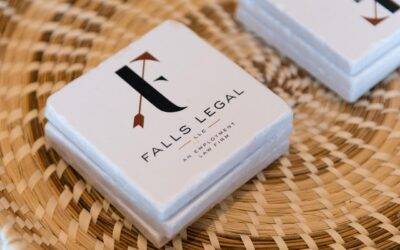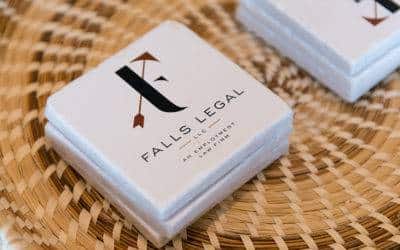SOUTH CAROLINA HARASSMENT & HOSTILE WORK ENVIRONMENT LAWYERS
SEXUAL HARASSMENT
Unfortunately, sexual harassment is all too often a reality in the workplace. Sexual harassment can take many different forms and is not just limited to the types of straightforward advances that may first come to mind. While many people associate sexual harassment with situations such as a supervisor demanding sexual favors in return for a promotion or an employee refusing such a request being subjected to termination, the more common form of sexual harassment is the subtle variety in which an employee is subjected to a hostile work environment.
Behavior that constitutes sexual harassment can take the form of physical, verbal, or visual activity. For example, sexual harassment can take the following forms:
- Touching, pinching, fondling, rubbing, massaging, or patting;
- Unwelcome sexual advances;
- Sexual innuendos and comments;
- Dirty jokes or displays of illicit or graphic content, including pornography;
Sexual harassment is not just limited to male approaches to females or approaches from the opposite sex. Anyone, male or female, can be a victim of sexual harassment and same-sex sexual harassment is also recognized under the law.
Likewise, harassers can be direct supervisors, other managers in different areas, or coworkers. Sometimes harassers might even be someone not employed in the victim’s workplace at all, such as customers, third-party vendors, or sub-contractors.
Sexual harassment is a form of sex discrimination that violates Title VII of the Civil Rights Act of 1964. The laws that relate to sexual harassment apply to employers with 15 or more employees, including federal, state, and local governments. Title VII forbids employers from retaliating against someone for filing a complaint of harassment or speaking out about harassment. It also protects you if you participate in an investigation on behalf of a co-worker who has been harassed.
What should you do if you believe you are facing sexual harassment at work?
1. First you should call an attorney and find out whether the harassment qualifies as sexual harassment under the law.
2. You should consult your employee handbook or policies. If your employer has a sexual harassment policy in place, follow it.
3. If you need to complain, you should put your complaint in writing and keep a copy for yourself. Be specific as to the incidents and use dates, times, and witnesses when possible.
4. If the harasser is your direct supervisor, check and see if your employee handbook provides guidance on what to do next. If it does not specify, take your complaint to Human Resources.
5. Consider filing a charge with the Equal Employment Opportunity Commission (“EEOC”) for sexual harassment. This federal agency is tasked with investigating allegations of sexual harassment in the workplace. There are strict deadlines associated with filing an EEOC charge and, in South Carolina, you must file a charge within 300 days of the conduct to preserve your rights. Although you do not have to have an attorney to file an EEOC charge, you should consult with an attorney before filing if you can. The EEOC will investigate your charge and issue a Notice of Right to Sue, which allows you to bring a claim in court.
OTHER FORMS OF HARASSMENT/HOSTILE WORK ENVIRONMENT
Sexual harassment is not the only type of harassment that occurs in the workplace. However, much of the conduct that potential clients complain of as “harassing” is not harassment in the eyes of the law. For example, many individuals report instances of verbally abusive bosses/supervisors who make false allegations of job performance problems to employees, have explosive tempers, or are general jerks in the workplace. Unfortunately, much of this conduct is not “harassment” in the eyes of the law. Whether the “harassment” is legal harassment must be determined on a case-by-case basis.
What kinds of harassment (other than sexual harassment) are protected under the law?
- Harassment on the basis of race/national origin (for example, verbal or physical conduct of a racial nature, including racial slurs, or treating an employee of one race more harshly than an employee of another race);
- Harassment on the basis of gender/sex (for example, treating women more harshly or verbally chastising women rather than men);
- Harassment on the basis of religion (for example, making fun of someone’s religion or religious practices, including religious slurs);
- Harassment on the basis of age (over 40) (for example, making fun of someone’s age, need to retire, etc.);
- Harassment on the basis of disability (for example, making fun of or mocking someone’s disability).
The law requires that an individual prove that the harassment, assuming it is legally actionable harassment, was either severe or pervasive. “Severe” harassment normally involves some type of physical touching but could also include use of a racial slur, as recently noted by the 4th Circuit Court of Appeals, which includes South Carolina. “Pervasive” harassment is the more typical type of harassment we see and includes less serious conduct that occurs frequently over a longer period of time.
LATEST POSTS
Falls Legal Awarded First Tier Ranking on 2022 “Best Law Firms” List
Falls Legal, LLC, a law firm dedicated to representation of employees in employment law matters, received a First Tier ranking on the 2022 Best Law Firms List in Charleston for “Litigation – Labor & Employment” and “Employment Law – Individuals” issued by U.S....
Employee and Job Applicant Rights under the Fair Credit Reporting Act: Know Your Rights in the Employment Screening Process
Employment background check cases are becoming more common. The Fair Credit Reporting Act (or “FCRA”) governs the circumstances in which an employer may procure a “consumer report,” which the FCRA defines to include all criminal and financial background checks...
Falls Legal Attorneys Named to Best Lawyers in America® and Super Lawyers®
Falls Legal is pleased to announce that attorney J. Scott Falls has been named to The Best Lawyers in America® 2018 for Litigation – Labor & Employment. Best Lawyers, which is published annually in almost 70 countries, recognizes attorneys with significant...
CONNECT WITH US
125-E Wappoo Creek Dr.
Suite 102
Charleston, SC 29412
843.737.6040
info@falls-legal.com



